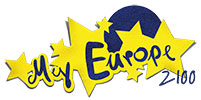The last Spanish vote has been casted. Hungarian polling stations have been closed. All German ballots have been collected. The usual nervousness amongst politicians is felt throughout the European Union. It will take a while before all votes have been counted. The first official results aren’t to be expected until Monday late afternoon. Meanwhile commentators will feast on exit polls and projections.
However figures on people that did vote in all members states are available. Comparing them with the ones from four years ago, leads to some remarkable conclusions. The number of voters has increased significantly. Levels of participation have risen across age groups, social classes and gender. Can we finally conclude that everyone stopped living in their own little world? Did citizens start seeing the bigger picture? People seem to have realised that their opinions matter. And so do their votes. Where does the consciousness that Europe impacts their everyday life suddenly comes from?
One of the reasons behind this sudden change is without any doubt EMI, the “European Media Initiative”. Since the European Commission launched this project, Europeans started to be increasingly informed. Step by step they seemed to feel more involved. The EMI is focussing simultaneously on a news site, several app’s, traditional newspapers and other social media. Through this variety of channels, people have easy access to summary articles about new laws, decisions and initiatives. Because everything there is to know about the EU is now available at a single news center, citizens are more inclined to have a look, instead of scrolling through thousands of articles. Since the very beginning it has been assured that these articles attract all kinds of readers. Simple language and rather short articles made the European Media Initiative attractive to a wider public.
After having made sure that citizens are better informed, interactivity became key. Ways were found to allow people to communicate with the government and providing input to the European Media Initiative. Today, people participate in online petitions and surveys. The weekly online debates on a variety of subjects are a big success. Individuals are given the opportunity to express their views and ideas while they are getting an immediate response.
Equally remarkable is the amount of youngsters voting. Rates seem to have increased by no less than 45 per cent. Reforms to national education programs do seem to deliver. Since national school systems have introduced political courses, the interest of students in European politics has kept on rising. Many critics were afraid about the impact of the teacher’s personal political preferences. The introduction of debating classes next to the more theoretical and traditional teaching methods, tackled this concern. Today, students learn to understand our political system by reading, discussing and debating actual themes. They are learning to voice their opinions and to listen to the point of view of others. The new approach played a crucial role for our students to understand their importance and their contribution as a young civilian in the European Union.
Elections seem to confirm what was already being felt: increased attention from the larger public for European decision making. Citizens seem to start appreciating the role of European politicians. Being better informed, engaged and educated, is now creating huge opportunities!
We can conclude that all the taken measures led to understanding how important politics are. Everyone stopped ignoring what was happening around us and started to take action. Whatever the results may be, we’re looking forward to a brighter future where everyone has a saying.
